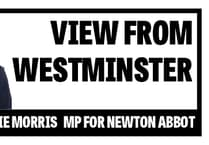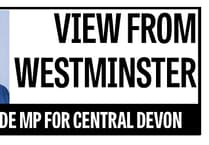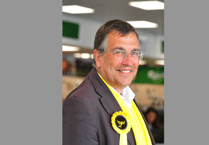NOW I get it. The point of maths. Let me set you a question. You have to travel a distance that should take one hour in a car but might take an extra ‘X’ minutes depending on roadworks.
You must arrive at a clinic with a full bladder having drunk at least two pints of water an hour before your appointment and not been to the loo.
Your condition is needing to go for a pee all the time, at night and having mostly lost the ability to hold it in when the urge intensifies.
So, the question is: what time to start drinking the two pints, what time to leave for the appointment and why on earth you didn’t ask the doctor for knock-out drops for the entire journey to override the brain’s dastardly and faulty messages!
Perhaps I can suppress my brain sending its commando style messages to my body to pee while en route for my appointment by thinking about Gary Lineker, the footballer.
(Once upon a time, I might have thought of him in a far more cheerful context.)
Anyway, the question of politics and the BBC came to quite a climax this past week when Lineker posted a criticism on the social media platform Twitter of the government’s policy towards refugees.
He was suspended from his role commentating and then, joy of joys, lots of other sports commentators refused to play ball (sorry) and put the BBC in the very awkward position of facing a ‘righteous rebellion’ from of all people ‘Sports’ people.
Not the metropolitan elite, sipping Chateau Pricey in Bloomsbury, not writers who inherited Hampstead villas and accidentally send their children to private schools.
No, when the clarion call for freedom of speech sounded, it was those whose lives are truly about team spirit, getting mucky on a pitch, playing with a straight bat, passing the ball to the woman or man who scores, that showed support for their colleague.
The lessons that sport teaches young people about working together as a group for a positive end-result can, it would seem, last a lifetime.
But the question remains – how should presenters who are employed by the country’s national broadcaster, the BBC, behave in public?
Should they be neutral politically? Political programmes need objective and neutral presenters who will challenge, deconstruct claims and stop politicians giving press releases as answers.
So, yes, presenters on politics programmes must keep their personal politics private.
But Lineker’s BBC commentary is about balls getting kicked about on fields. His personal political views, however publicly expressed, are not injurious to the quality of his output discussing the footie or the off-side rule (whatever that is).
Contrast the Lineker episode with presenter Fiona Bruce this week. Bruce has resigned as ambassador for the women’s charity Refuge following comments she made chairing ‘Question Time’.
In discussions about former PM Boris Johnson recommending his Daddy, Stanley, for a knighthood (yes really!), one of the panellists referenced Stanley as a “wife-beater.”
Bruce cut in and said: ‘Just so everyone knows what this is referring to, Stanley Johnson’s [ex] wife spoke to a journalist, Tom Bower, and she said that Stanley Johnson had broken her nose and that she’d ended up in hospital as a result.
‘Stanley Johnson has not commented publicly on that. Friends of his have said it did happen, it was a one-off.’
Domestic abuse is rarely something that happens just once, the charity ‘Women’s Aid’ is quoted saying. Should Bruce have made that comment?
No. The ‘only once’, ‘totally out of character,’ argument is not the experience of abused women although the false promises men make of ‘never again’ certainly are. But what bothers me even more than Bruce’s remarks is why, when Question Time is pre-recorded, that whole section was not edited out.
Bruce quotes the ‘only once’ defence for a millionaire Tory who has beaten his wife and keeps her job. Lineker tweets a critical opinion of the Tory government and is suspended. Makes me wonder who’s really in charge of our national ‘neutral’ broadcaster.




